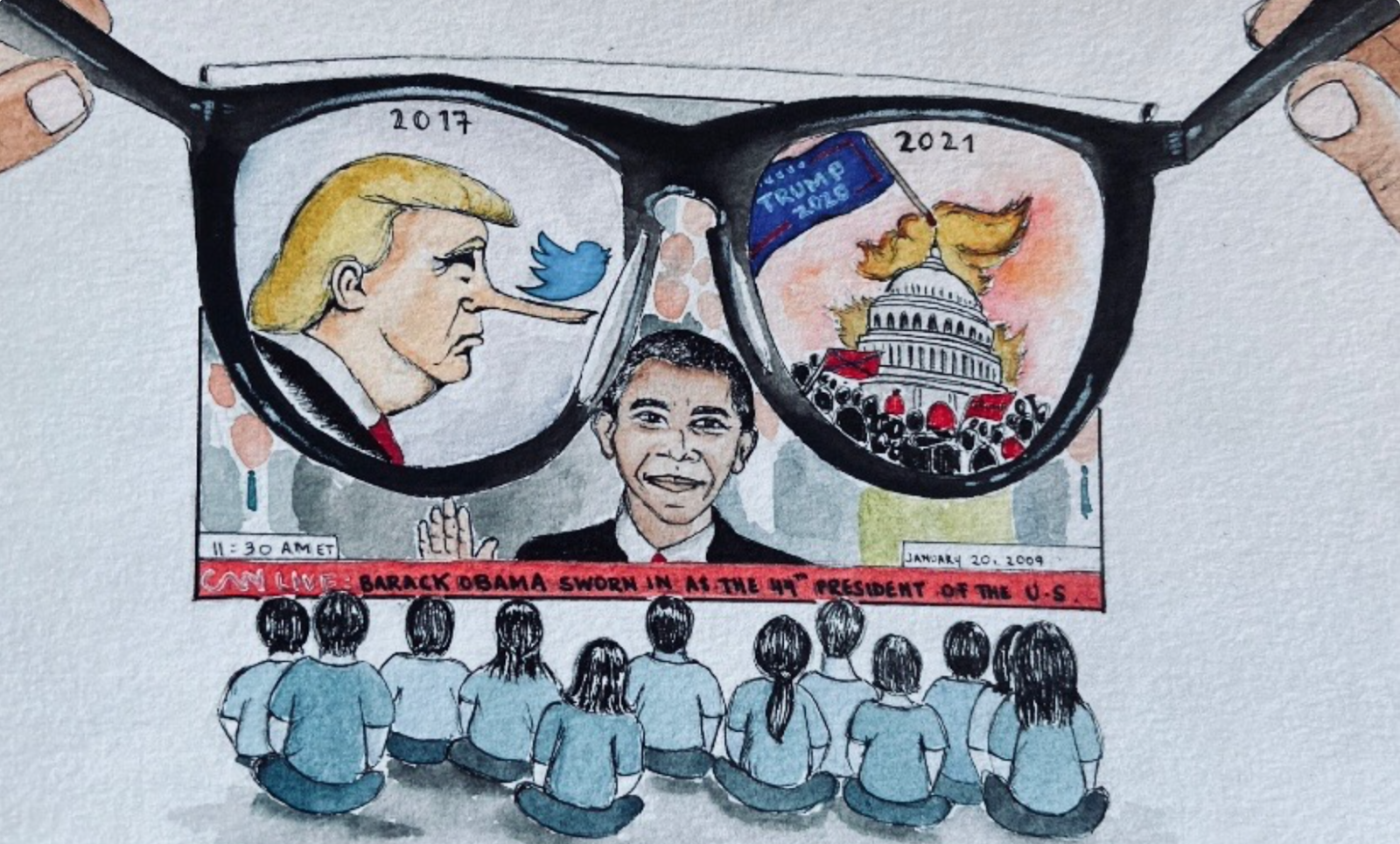We are in the depths of one of history’s largest human rights crises. Syria is hemorrhaging refugees, and its citizens inside and out are being deprived of basic living, educational, and health resources. Humanitarian assistance organizations are overloaded with need, and strong Western governments need to step up to bridge the gap. Instead of focusing our resources on ineffective programs, we should be searching for new and innovative solutions to problems plaguing refugees. If the United States makes the effort, it will have the brainpower and resources to provide greatly needed assistance to help alleviate the refugee crisis. It is the duty of those who are able to provide help during tragic instances such as this to do so. The United States is able to act in many ways, but specifically, action through Silicon Valley has proven to be effective throughout the crisis. Establishing grant programs to expand refugee aid projects within the tech industry, therefore, should be a primary goal of the United States in dealing with this tragedy.
Silicon Valley has proven that government-backed programs can be massively successful. When Kickstarter started a crowdfunding campaign at the White House’s request, it raised over $1.5 million in one week, helping the UNHCR resettle over 7,000 refugees.[1] Other tech companies have taken it upon themselves to contribute aid in creative ways, including Airbnb providing free housing credits to aid workers and Instacart encouraging its consumers to donate food rations as they fill their own virtual grocery carts.[2][3]
While these fundraising campaigns provide much needed assistance, they do not take full advantage of the tech industry’s power. The real change for refugees will be the tangible solutions to their greatest problems: resettlement, health, and education.
With millions of refugees flooding into Europe, existing resettlement systems and resources are being overwhelmed. Refugees are largely left on their own in confusion when resettling in a foreign country and obtaining the benefits to which they are entitled. In many countries, groups are already developing apps and websites to provide essential information to new refugees, such as information on finding housing, UNHCR locations, public transportation instructions, and tips on applying for asylum.[4] Google has expanded its visual translation program to include Arabic, allowing refugees to snap an image of any sign or text and have it instantly translated on their smartphones.[5] In Jordan, UNHCR is disseminating aid to refugees from banks using iris-scanning technology to verify their identities.[6] This simplifies aid obtainment, and cuts down on financial and personnel costs for UNHCR. Many of these innovations have been accomplished with very little funding. With more money, the creation of more advanced solutions to refugees’ problems will be possible.
Healthcare is one of the largest problems facing refugees. Many left in Syria cannot make it to hospitals and Syrians abroad have limited access to health resources in refugee camps. While physical health is the most pressing concern for Syrians, mental health is perhaps more daunting. The mental effects of war and forced migration are going to be felt for many years. A promising solution is virtual health clinics. These clinics allow doctors around the world to use Skype to virtually diagnose and counsel Syrians in remote areas.[7] With funding, programs like these could expand to assist all refugees in need of medical assistance. Tech giant Mark Zuckerberg has committed to bringing internet to refugee camps, further increasing the feasibility of virtual health assistance projects, given they are provided with the funds to develop the program.[8]
There is a serious risk of an entire generation of Syrians remaining uneducated. Syrian refugees are lucky if they have access to any sort of education, let alone quality education on a full-time basis. Virtual classrooms could be revolutionary in the lives of young refugees. These classrooms have the potential to connect them to students and teachers around the globe and allow them to continue their education in nearly every topic imaginable. Basic programs are already being developed, but with more funding and the help of Silicon Valley, large-scale and comprehensive education programs could be offered to refugees.[9]
The United States’ defense budget totals that of the next seven highest countries’ combined.[10] The best defense against extremism and encouragement of global peace and cooperation is providing aid to those in need — and the West certainly doesn’t lack the funds. Through grant programs, we could support companies at home developing innovative technology that would be revolutionary in refugee and humanitarian assistance.
References:
[1] “The UN Refugee Agency is working to relieve a global crisis. You can help.” Kickstarter. Accessed November 11th, 2015. https://www.kickstarter.com/aidrefugees.
[2] “Instacart Partners with USA for UNHCR to Help Aid Refugees.” Instacart. Accessed November 11th, 2015. http://news.instacart.com/2015/10/06/instacart-partners-with-usa-for-unhcr-to-help-aid-refugees/.
[3] “Join Airbnb in supporting relief organizations on the front lines of the refugee crisis.” Airbnb. Accessed November 11th, 2015. http://blog.airbnb.com/airbnb-refugee-response/.
[4] Rao, Mallika. “A Digital Survival Guide For The Modern Refugee.” The World Post. October 10th, 2015. Accessed November 11th, 2015. http://www.huffingtonpost.com/entry/apps-for-refugees-and-migrants_560c2cc9e4b0768127004fa1.
[5] “An update on our response to the refugee and migrants crisis.” Google. Accessed November 11th, 2015. https://googleblog.blogspot.in/2015/10/update-response-refugee-migrants.html.
[6] Russon, Mary-Ann. “UN: Biometric iris scanners transforming Syrian refugee programme by preventing fraud.” International Business Times. November 5th, 2015. Accessed November 11th, 2015. http://www.ibtimes.co.uk/un-biometric-iris-scanners-transforming-syrian-refugee-programme-by-preventing-fraud-1527362.
[7] Hanna, Assad. “Syrians turn to virtual health clinic for medical help.” Al Monitor. September 9th, 2015. Accessed November 11th, 2015. http://www.al-monitor.com/pulse/originals/2015/09/syria-medicine-online-clinic-treatment-diagnosis-regime-war.html.
[8] Sengupta, Somini. “Mark Zuckerberg Announces Project to Connect Refugee Camps to the Internet.” The New York Times. September 26th, 2015. Accessed November 11th, 2015. http://www.nytimes.com/2015/09/27/world/americas/mark-zuckerbergannounces-project-to-connect-refugee-camps-to-the-internet.html.
[9] Favell, Andy. “How technology is helping deliver aid to Syrian refugees in the Middle East.” ComputerWeekly.com. October 2015. Accessed November 11th, 2015. http://www.computerweekly.com/feature/How-technology-is-helping-deliver-aid-to-Syrian-refugees-in-the-Middle-East.
[10] “The U.S. spends more on defense than the next seven countries combined.” Peter G. Peterson Foundation. April 13th, 2015. Accessed November 11th, 2015. http://pgpf.org/Chart-Archive/0053_defense-comparison.



